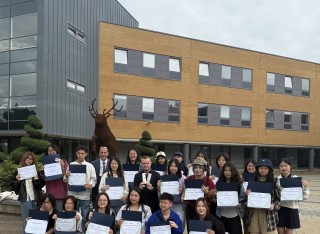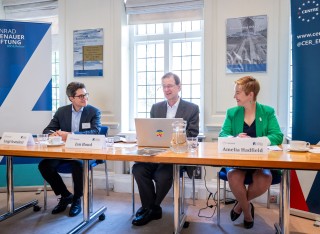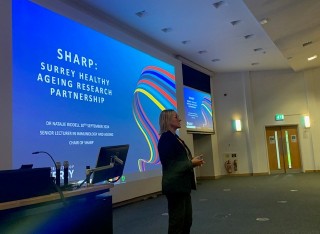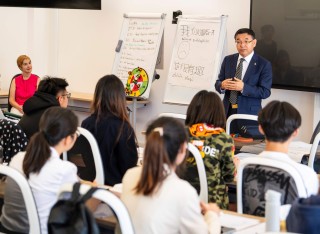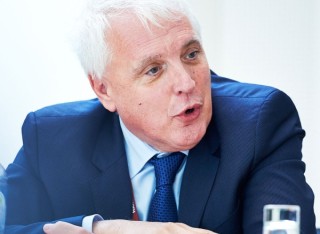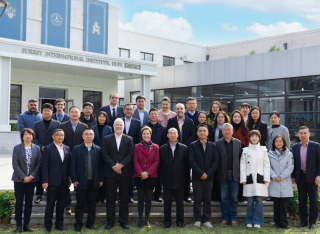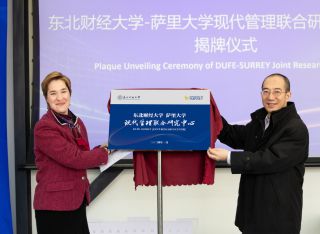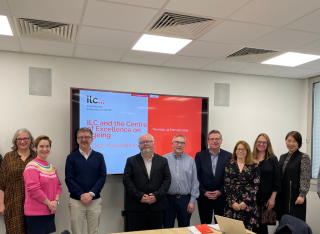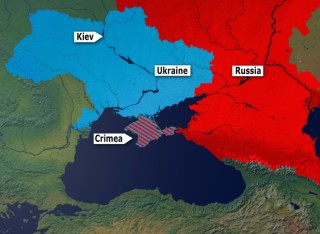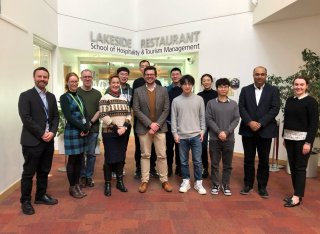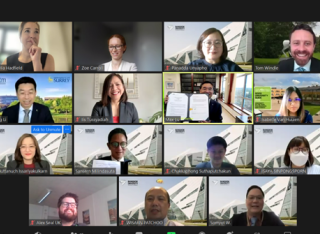
Professor Amelia Hadfield
About
Biography
Amelia joined the University of Surrey in January 2019 as Head of the Department of Politics, and Chair in European and International Affairs. Previously she worked as Director of the Centre for European Studies (CEFEUS), a Jean Monnet Centre of Excellence at Canterbury Christ Church Uni (2013-2018), after positions in Brussels at the Vrije Universiteit Brussels and the Institute for European Studies, where she directed the Euromaster degree, as well as the Educational Development (EDU). Amelia is a long-standing Jean Monnet Chair in European Foreign Affairs, allowing her to successfully obtain Erasmus+ funding for the University of Surrey’s Centre for Britain and Europe (based in the Department of Politics), establishing it in 2020 as a Jean Monnet Centre of Excellence. Amelia’s researching, teaching, consulting & postgrad supervising covers a wide range of areas on EU foreign and security policy, as well as new forms of EU-UK relations. These include Common Foreign and Security Policy, Common Security and Defence Policy, EU-US and EU-Canada relations, EU-Russia relations, EU Neighbourhood Policy, EU Development policy (with a focus on sub-Saharan Africa), as well as Arctic & northern governance issues. Additional areas of interest include foreign policy analysis, international and diplomatic history, the role of sovereignty in political history, International Relations theory, international political economy, public policy analysis, the Commonwealth and EU education policy. Amelia is regularly called upon as a guest speaker, external supervisor, research partner, consultant and media pundit on areas of EU foreign affairs, and of late, EU-UK relations. In January 2021, Amelia was appointed Dean International of the University of Surrey, leading the International Engagement Office in supporting the strategic goals of the university on partnership with other universities and networks world-wide, enhanced cutting-edge research cooperation, as well as staff/student mobility. From October 2023, Amelia was appointed Associate Vice-President of External Engagement, helping to deliver the University of Surrey’s international strategies, alongside community engagement, public affairs, and developing new partnerships at local, regional, national and international level.
In December 2024, as a result of her work with UNITAR, the UN’s research and capacity building agency, and complementing her role as Co-Founder and Co-Director of the Centre of Excellence on Ageing (April 2023), Amelia was appointed inaugural Director of the CIFAL Surrey Centre, a knowledge exchange hub based within the Institute for Sustainability, dedicated to training and capacity building climate literacy, climate leadership and sustainability more broadly.
News
In the media
Sustainable development goals
My research interests are related to the following:
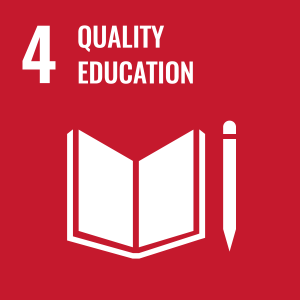


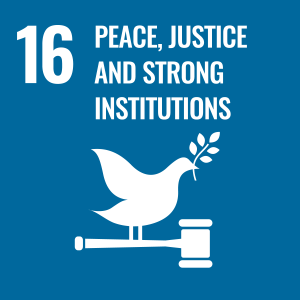
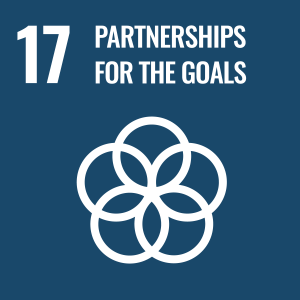
Publications
This ground breaking text provides the ideal introduction to the ever-changing field of foreign policy. With a unique combination of theories, actors and cases in a single volume, the expert contributors provide students with a valuable and accessible introduction to what foreign policy is and how it is conducted. With an emphasis throughout on grounding theory in empirical examples, the textbook features a section dedicated to relevant and topical case studies where foreign policy analysis approaches and theories are applied. The expert team of contributors clearly conveys the connection between international relations theory, political science, and the development of foreign policy analysis, emphasizing the key debates in the academic community.
Over the last decade or so, interest in Lethal Autonomous Weapons Systems (LAWS) has grown among academics, policy makers, and campaigners. The debate, however, has been dominated by international lawyers, ethicists, and technologists at the expense of other analytical lenses. This chapter uses International Relations Theory (IRT) in order to provide a fresh perspective, focussing on realist, liberal, and constructivist approaches. Beginning with a conceptual discussion of the nature of LAWS, the chapter uses IRT to assess the potential impact of LAWS on the ability and willingness of states to cooperate under conditions of anarchy. The chapter concludes that while established IRTs offer useful insights into the impact of LAWS on wider international security, LAWS also push the conceptual boundaries of IRT. Over time, IRT might have to adapt itself to deal with the practical consequences of the introduction of LAWS.
Why we need Environmental Social SciencesEnvironmental issues are ultimately social issues. They are caused by, understood by, and must be solved by, people as individuals, groups, communities, political and institutional systems.Securing the future of our planet and the wellbeing of humankind requires an in-depth understanding of the interdependent relationships between people and their social and natural environment. It requires knowledge and expertise of all environmental social sciences.Who is this document for?This document is for anyone with an interest in understanding and tackling people-environment relationships and environmental problems. This includes those working as, or with, environmental social scientists in academia, policy and practice, as well as scientists, knowledge brokers and policy makers and practitioners wishing to explicitly consider people-environment relationships in their work. This may include questions around climate change, net zero emissions, nature-climate relations, biodiversity, use of natural resources, consumer choices, as well as people’s relationships with their natural environment and non-human nature.Why this document is neededEnvironmental problems are deeply rooted in social structures and tackling these problems requires significant social transformation for which environmental social science (ESS) knowledge and expertise is essential. However, the potential value and role of environmental social sciences in research and policy and practice is not always clearly valued or understood. Overlooking the vital role of people and ESS insights contributes to inadequate environmental policy.Social sciences can sometimes be dismissed as common sense and is too often carried out by those without proper training and social science expertise is often under resourced. There is frequently a narrow understanding of the range of insights, tools and techniques that different environmental social sciences can offer.Knowledge of and requests for environmental social sciences (for instance by other researchers or decision makers) is often limited to research that studies how end users (consumers) respond to new technologies or environmental policies after the problems have been framed and the solutions have been designed. Knowledge of ESS research is often based on outdated ways of thinking, for example the knowledge-deficit model, which assumes that people lack the knowledge to “do the right thing”. There is also less emphasis on more inclusive methods that bring different groups into framing the problem. However, there is a huge variety of different types of environmental social sciences. Social science has played an important and significant role in research impact. Researchers have a vast array of methods and knowledge at their disposal that is critical to help understand and improve people-environment interactions and successful delivery of policy and practice. Environmental problems require insight and knowledge from a range of different disciplines, including social sciences. This document provides a synopsis of what environmental social science is, what it does and what it can offer to environmental research, policy and practice.
Brexit has been a game-changer for Britain, and its key partners. Strategic shifts as well as historic relations have impacted the UK’s relationship with France in a number of unexpected ways. This article explores some of the key historical events that have caused both agreement and strife between the two states, looking at the bilateral treaties established to deepen cooperation on security and defence, specifically the Lancaster House agreements, and considers the series of intriguing accords and conventions that have arisen from the mid-1980s, as well as the logistical challenges of the shared border and juxtaposed border controls of Britain and France. Post-Brexit diplomatic forums in which Britain and France are joined by Germany are then explored, before assessing Britain’s attempts to forge its new role in relation to long-standing commitments to France and an evolving relationship with the EU.
The Environmental Social Science kNowledge Exchange Map of Opportunities (ESS NEMO) is a package of systems maps and associated documentation that show the groups, organisations and individual actors that environmental social scientists could engage with in knowledge creation and/or exchange in the UK. ESS NEMO is a tool that, among other rationales, aims to promote greater collaboration and trust between environmental social scientists, and with other groups that may not traditionally be included in ESS activities. Environmental Social Science (ESS) is defined as the systematic study of people and their social and their non-human physical environment (their habitat) (Gatersleben et al., forthcoming). The information presented in ESS NEMO reflects the situation as of 10th July 2024. It is acknowledged that the landscape is dynamic, and changes frequently over time.
Brexit is proving epochal in its impacts on Britain. Work exploring Brexit's impact upon the structure, responsibilities and future plans of English local government is critical for anumber of reasons, from the sheer preponderance of legislation fundamentally altered in the context of the European Union Withdrawal Act of 2018, to changes in regional funding streams and alteration to the governance of local authorities. Based on the original research undertaken between 2015 and 2018 in South East England and the county of Kent, this article contributes to the body of research exploring Brexit's impact on local government. To do so, it draws on acombination of stakeholder interviews, in-house analysis, regional Brexit impact assessment reports, evidence given in 2017 to the Housing, Communities and Local Government Committee, and the Committee's final report of April2019.
In the October 2015 elections, the charismatic Justin Trudeau led the Canadian Liberal Party to its first majority government in 15 years, overturning nearly a decade of conservative government. His premiership is generally considered to have begun well. This article examines Trudeau’s conduct of the election campaign, his choice of a young and diverse Cabinet, his courtship of the media and image making, and assesses changes in foreign and domestic policy. These have yet to prove substantive but Trudeau has signalled a reversal of Stephen Harper’s conservative policies and especially in regard to migration has tapped into images of ‘compassionate Canadians’. In foreign policy, this has been evidenced in relations with the United States and with a re-engagement with the Commonwealth especially in its soft power aspects. Trudeau’s green credentials and stance on Climate Change are a contrast to those of his predecessor but he has yet to confront the different environmental profiles and policies of the Canadian states. Canada’s Strategic Partnership with the European Community and the ratification of CETA are priorities and he has to come to terms with the implications of Brexit.
Brexit has induced a diplomatic reorientation on the part of the UK. In the post-referendum period, the UK has sought both to re-make its relationship with Europe (mainly through negotiating a position as a third country to the EU) and to reset its broader foreign and security policy objectives beyond Europe. This article explores how this has been pursued through the reinforcement of Britain's identity, role and status as a Euro-Atlantic power, alongside a 'plurilateral' approach that has emphasised partnerships and foreign policy issues within and beyond Europe. Through an examination of the UK's developing relationship with the EU and role in the United Nations and the Commonwealth, the article explores how the UK Government has sought to project British influence and to preserve the UK's status as an international actor of note.
This chapter examines the conceptual assumptions that underlie Erasmus: the EU's most successful student mobility scheme. Originally designed to inspire a new 'geography of European youth', Erasmus provides ambiguous outcomes in terms of generating a deepened sense of European identity. A European youth demographic clearly exists, but its ability to support European integration through specific dynamics of identity, association, and skill generation have been undermined internally by a lack of clarity regarding the current purpose of Erasmus, and externally by the upheavals of enlargement and the Eurozone crisis.
The post-war heritage, institutional similarities, and policy motivations shared between commonwealth entities and contemporary international organisations, and their subsequent impact on soft power represents a wealth of unexplored potential.
This article examines the role that education plays in European Union (EU) integration. We ask whether efforts which historically have been designed to endow European students with a ?knowledge of Europe? in terms of an understanding of culture, politics and sensibility have been circumscribed by, or augmented, by the recently inaugurated Europe of Knowledge project. We argue that the renowned Erasmus mobility programme, a flagship of European higher education innovation, may, in light of critical challenges to the Eurozone and the EU project, be recasting itself along its initial 1987 objectives: enhancing a sense of European identity amongst participating exchange students while endowing them with transferrable skills designed to strengthen current weaknesses in the European internal market. We suggest that the initial, integration-fostering, identity-building goals of Erasmus concomitant with ?growing a Union?, have since 2009 and in the continuation of the Eurozone financial crisis, been progressively replaced by the acquisition of transferable skills necessary to boost employability and drive economic recovery through enhanced labour mobility. As the majority of European labour markets struggle to regain their momentum, we question whether European students participating in the Erasmus programme emerge as merely ?skilled? rather than ?schooled? in a wider knowledge of Europe intended by the programme?s founders. Surveying students regarding their perceptions of European and national identities, this article concludes that education through mobility remains a highly significant and viable means of constructing and reconstructing identity and European integration, even in a time of economic crisis.
The concept of EU à la carte is an interesting one. For some, it invokes images of scattered states,unreconciled policies and unworkable objectives. For others, it suggests areas of complementarity that ultimately makes collaboration possible. EU à la carte options wax and wane according to the health of the overall EU enterprise, and the suitability of key mechanisms like integration and governance. When the latter encounter problems in providing collective solutions, then the benefits of flexible à la carte options are routinely suggested. But à la carte operations are risky and complex. As a non-uniform method of European integration, they operate via centrifugal philosophies which generally make a virtue of the peripheral, rather than a necessity of the centre. Can one strike a balance between the deep demands of integration, and a pragmatic use of looser approaches? The EU may need to. Collective approaches typify the EU’s pioneering approaches to climate change, but energy security remains defiantly geopolitical in nature. Whilst energy security continues to be determined by national foreign policy dynamics, à la carte mechanisms may be a helpful way of bypassing the current stasis in Europe’s energy mainframe. Could à la carte go even further? Some of the software and hardware, and even decarbonisation goals of the European Energy Union (EEU) could be accomplished in the short term by allowing Member States to achieve initial goals at different speeds and varying methods. This has the advantage of getting the general structure of the EEU completed, as well as retaining the inputs of non-EU Member States (and those swiftly heading for the exit). But achieving the security of the EEU is a tougher battle, requiring solidarity rather than symmetry. Energy security is the minimum objective, but it requires a maximum of input. À la carte mechanisms may work, but it would have to do so in a way that achieves genuine regional balance and between vulnerable states and the strategic imperatives of the EEU as a whole.
EU development policy conforms reliably to a stable and predictable policy-cycle between 1957 until the early 2000s. After that, we see a shift towards more explicitly frame-based outputs utilising the mechanism of policy nexuses. This article, drawing on a range of primary policy documents and key case studies, illustrates the difference between the first era by which EU development retains a stable process within the boundaries of the policy cycle and the subsequent shift to the use of ‘framing' to bind a series of separate activities to the core of development policy via the use of ‘policy nexuses'. The article concludes with reflections on the resulting seminal changes to the EU’s overall approach to development, and its implications for the EU as a development actor.
History, it may be argued, has been unkind to some states and downright vicious to others. Few regions — ancient or modern — are home to the combustible mix of divergent geographic, ethnic, religious and tribal allegiances as the Balkans. Fewer still have undergone the transition from rabid internecine strife to nascent democratic legitimization, as have the post-Yugoslav states of the Balkan region.
Tune in for another episode of ‘Make America Great Again!’ You’ll remember June’s episodes saw President Trump scupper the Canadian G7, cozy up to Kim Jong-Un and instigate wide-ranging steel and aluminium tariffs against the EU, Canada and Mexico. De-sensitized as we’ve become to Trumpian geopolitics, we were unprepared for the untrammeled lunacy of July. Pissing off the Canadians was clearly just the beginning.
Education has emerged as an increasingly rewarding, but highly ambiguous form of foreign policy. Shifting from a domestic dynamic, constructed via internal processes for reasons of national self-identity, the internationalization of education has emerged as one of the most salient trends in higher education across the globe (CBIE 2011, 3), and become a clear component in the foreign policies of states and institutions alike. While scholarly investigation into foreign policy and education have in and of themselves remained popular areas of interest within the political and social sciences, exploring ways in which education is operating as a vehicle of twenty-first century foreign policy, as well as looking at how foreign policy content and ambitions are beginning to impact on the substance and structure of higher education is a relatively new field. This paper explores the role of contemporary higher education in European Union, and Canadian foreign policy terrains.
The multidimensional crisis of European integration, explored in this volume, has generated both negative and positive images of the European Union (EU). Critics argue that the EU has lost its superiority as an international economic player, that its soft power foreign policy lacks credibility, and that its response to key crises have critically impaired both its institutional integrity and its overall presence. Such views now appear particularly salient in light of the June 2016 UK Referendum. Supporters contend that despite these setbacks, the EU?s global image remains intact, based on its commitment to development policy, humanitarian assistance, and climate change mitigation; to promoting peace and stability in the Western Balkans; and to reforming Eurozone governance.
Brexit represents a watershed moment in the UK's foreign affairs. As this article explores, the UK’s ability to ‘carry on’ post-Brexit requires it to rework key parts of its domestic role, and significantly reshape its emergent international ‘Global Britain’ brand with key partners including the EU and the UN for it to become a viable actor in global affairs.
Summits are tricky. Last week’s EU summit (28-29 June) was predicted to be a tough one, with division between Europe’s leaders over migration, and anxiety about the Brexit timetable. In one area however, European harmony shone more brightly. While migration talks dragged on with somewhat opaque results, EU Member State heads were able to swiftly agree on proposals to strengthen inter-EU defence cooperation, and most notably on project PESCO (Permanent Structured Cooperation).
Foreign Policies of EU Member States provides a clear and current overview of the motivations and outcomes of EU Member States regarding their foreign policy-making within and beyond the EU. It provides an in-depth analysis of intra-EU policy-making and sheds light, in an innovative and understandable way, on the lesser-known aspects of the inter-EU and extra-EU foreign policies of the twenty-eight Member States. The text has an innovative method of thematic organisation in which case study state profiles emerge via dominant foreign policy themes. The text examines the three main policy challenges currently faced by the twenty-eight Member States: • First, EU Member States must cooperate within the mechanisms of the EU, including the Common Foreign and Security Policy (CFSP). • Second, EU Member States continue to construct their own inter-EU foreign policies. • Third, the sovereign prerogative exercised by all EU Member States is to construct their own foreign policies on everything from trade and defence with the rest of the world.
What is EU energy policy — and how successful is the EU in projecting it? Of course, posing questions about the nature of EU energy policy presumes that the EU has a collective energy policy. This has been a slowly emerging and contested area of EU competence — certainly in comparison with other sectors. The question of what EU energy policy is can be answered by pointing to the three ‘pillars’ that have historically constituted the objectives of EU energy policy: climate-change mitigation, energy supply security and establishing competitive, integrated markets (EC 2013a). EU energy policy might in this way be explained as the application of various strategies and instruments, and the establishment of institutions, in pursuit of these three objectives.
Brexit has provoked all manner of clashes, from trade to fisheries, from funding to the colour of passports. It's the tip of the iceberg. As the EU Withdrawal Bill makes clear, the ability to restructure the governing power of Britain itself is at stake. This blog examines the power play between the English regions, local governments, and Westminster against the backdrop of Brexit.
Covid-19 has had the most profound impact at all levels: globally, nationally, and individually, across every sector imaginable. The 'spectrum of responses' represents an emerging structure that decision-makers have created and implanted, to help control the unpredictable nature of the pandemic. From shut down to lock down, from time and location-based unlocking, and back to full release, local and national communities alike have struggled - and some have succeeded - in their responses to Covid's epidemiological impacts. Every state, every individual has been propelled back and forth along this spectrum, and the spectrum itself has been swiftly made, and overhauled by governments attempting to stay one step ahead of the spread, in lockstep with the swiftest developments in immunology and virology yet seen this century. But the spectrum cannot capture everything, including the tremendous economic and social impacts that Covid has had on societies, and indeed the most appropriate steps to take next.
The concept of EU à la carte is an interesting one. For some, it invokes images of scattered states,unreconciled policies and unworkable objectives. For others, it suggests areas of complementarity that ultimately makes collaboration possible. EU à la carte options wax and wane according to the health of the overall EU enterprise, and the suitability of key mechanisms like integration and governance. When the latter encounter problems in providing collective solutions, then the benefits of flexible à la carte options are routinely suggested. But à la carte operations are risky and complex. As a non-uniform method of European integration, they operate via centrifugal philosophies which generally make a virtue of the peripheral, rather than a necessity of the centre. Can one strike a balance between the deep demands of integration, and a pragmatic use of looser approaches? The EU may need to. Collective approaches typify the EU’s pioneering approaches to climate change, but energy security remains defiantly geopolitical in nature. Whilst energy security continues to be determined by national foreign policy dynamics, à la carte mechanisms may be a helpful way of bypassing the current stasis in Europe’s energy mainframe. Could à la carte go even further? Some of the software and hardware, and even decarbonisation goals of the European Energy Union (EEU) could be accomplished in the short term by allowing Member States to achieve initial goals at different speeds and varying methods. This has the advantage of getting the general structure of the EEU completed, as well as retaining the inputs of non-EU Member States (and those swiftly heading for the exit). But achieving the security of the EEU is a tougher battle, requiring solidarity rather than symmetry. Energy security is the minimum objective, but it requires a maximum of input. À la carte mechanisms may work, but it would have to do so in a way that achieves genuine regional balance and between vulnerable states and the strategic imperatives of the EEU as a whole.
As a result of the 2004 ‘big bang’ enlargement and its subsequent 2007 expansion, the European Union (EU) has undergone a dramatic transformation in both its internal composition and the geopolitical make-up of its new peripheries.2 Recognised as the EU’s most successful foreign policy, enlargement has established the young Union as a regional actor of considerable political, economic and normative power, capable of having generated a wave of institutional reforms across eastern and central Europe. However enlargement has also raised the stakes of geopolitical stability significantly; first by unveiling a swathe of new countries on its eastern borders, prompting the question of how the EU should best manage its relationship these new neighbours.3 Some nations in these new frontiers may well yet be included in the Union fold; others appear destined to remain on the outside. Secondly, enlargement has also resurrected the issue of Europe’s ‘old neighbours’, who inhabit the Mediterranean and whose engagement with Europe has been sporadic and awkward. Neighbours old and new represent a challenge to the internal composition of the EU and its extended frontiers, thrusting onto the agenda the uneasy issue of the qualitative goals of the Union as a regional actor and the apparently quantitative issue of its absorption capacity. This constitutes a third, more existential challenge, that of the ultimate identity of the EU, present and future.
The only introduction to foreign policy to combine theories, actors, and cases in one volume. - Shows the links between international relations theory, political science, and the development of foreign policy analysis, emphasising the key debates within the academic community. - A stellar line-up of contributors share knowledge and expertise in their specialist areas. - Presents both the theoretical and practical sides of foreign policy. New to this edition - New chapters on postcolonialism and gender support the growing inclusion of these topics in foreign policy teaching. - Foreign policy case study chapters in part three are fully revised with more systematic focus on Asia, and major revisions to the chapters on China, India, and Brazil to reflect contemporary discourse. - New chapter on aid diplomacy. - Available to all users of the e-book and Politics Trove, online resources have been fully updated and new multiple-choice questions for students added.
As the most concise, accessible guide to the EU, The European Union: How does it work? is an ideal introduction for those coming to the subject for the first time. A team of expert scholars cut through the complexity to explain how the EU works, both in theory and in practice, helping students gain the knowledge they need to succeed.A perfect introduction to the EU for those with little or no prior knowledge of the subject: concise and readable, with coverage of the key actors, policies, and developments in the EUAn expert line-up combines leading scholars and practitioners with first-hand experience of the EU's institutions'How it really works' boxes help students connect theory with clear explanations illustrated by real-world examples'Key concepts and terms' boxes, discussion questions and further reading features further support students in broadening their knowledge of the EUA range of boxes throughout the text explore specific cases that highlight how the EU works, what it does, or how it has evolvedAlso available as an e-book with functionality, navigation features, and links that offer extra learning support
The much-anticipated Franco-British summit takes place on Friday, 10th March, in Paris, France. With French President Emmanuel Macron hosting UK Prime Minister Rishi Sunak, this is the first such summit between the two sides since 2018, and presents a vital opportunity for the two leaders to discuss - and forge agreements - on key issues. This UKICE-Centre for Britain and Europe policy brief provides both the state-of-play following the deluge of changes in the UK-France relationship since the last big summit, and a primer on the key issues dominating the summit agenda itself. The summit is both a "sign of thawing relations between Britain and key EU partners" and an opportunity for a much-needed bilateral reset in several areas (FT, 11 January, 2023). These fall into two broad categories. First, those issues like cross-Channel migration and defence which relate largely to the UK's bilateral relations with France and, second, those including energy security, regional security (including the war in Ukraine) and foreign policy that relate more broadly to the UK's relationship with Europe and the El-J. While these are all highly pressing issues, they also represent multidimensional policies where one side's approach materially impacts on the how the other side can respond, which in turn increases the overall scope for cooperation. Indeed, the multi-level nature of the agenda provides a helpful opportunity for Sunk and Macron to make real strides in establishing a new strategic ecosystem (or possibly rebooting the old one) between the two countries which in turn can apply to their wider relations with Europe (S. Malhotra, 2022). While the summit brings together the UK and France, these issues touch on both bilateral, and European policy frameworks. A tumultuous five years has passed since the last UK-France summit in 2018. During that time, the travails of the Brexit divorce proceedings have complicated and arguably worsened Britain's relationship with the EU as a whole, and with key EU Member States in particular. Britain's relations with France have remained tense in key areas, with antagonism producing deeply entrenched positions on migration, and limited cooperation on in other areas such as security, the post-Covid recovery, climate change, and energy shocks. Timing, however, is everything. The recent Windsor Framework, which represents a significant deal between PM Sunak and the EU to settle the dysfunctional relations around the Northern Ireland Protocol, so far appears successful. Having established a compromise on the most challenging of issues through the use of "old-fashioned diplomacy" , the Windsor Framework has established a much needed tone of trust and compromise between the UK and the EIJ, including President Macron, who has been among "the most hard-line of EU leaders on how the British should be treated" (Grant, 2023). While not all parties have yet given their blessing to the framework (including the Democratic Unionist Party representing unionist voters in Northern Ireland), the end of the UK's Brexit purgatory could at last be in sight. While summits are often an opportunity for extensive pageantry and little commitment - long on flag waving and short on binding provisions - both sides appear to be taking the 10 March bilateral seriously. Both sides will want to undertake three goals. First, to outline the specific visions that each country has established for itself, and its role in the world (the UK's upcoming second edition of its Integrated Review, and France's recent Revue Nationale Stratégique) (A. Billon-Galland and E. Tenenbaum, 2023). Second, to clarify both the limits and ambitions of their bilateral security and defence cooperation, arising from agreements in the original 2010 Lancaster House Treaties (P. Bergsen, R. Whitman, A. Billon-Galland, 2023). Third, to discuss their respective leadership roles within Europe, key international fora, and regarding the next stages of the war against Ukraine. Crucially, both sides need to find themes with which they readily identify and demarcate areas unique to them alone. Beyond defence and security, migration, energy, and international frameworks for cooperation are likely to be other focal points, and this paper now considers each of these areas in turn, looking at the state of relations and what is potentially up for discussion.
The war in Ukraine has put energy security front and centre once again. Energy transformations have bubbled away in the EU with predictable familiarity: rising and falling in tandem with geopolitical shifts or climate change pressures. 2022 however has been an epochal year in European energy terms, and 2023 and beyond are likely to be just as seismic. The EU has folded energy security, sustainability, foreign and security policy, strategic autonomy and trade into one enormous package, and used it to both cohere itself as anegotiating actor, and render itself influential with regional and global powers, from Ukraine and Russia to the US, NATO and the UN. Some turning points are long overdue, including the broader area of European energy security. Others, in terms of possibilities by which to overhaul the European oil, gas, electricity and renewable markets, have come online in a more radical fashion. There are however, two clear themes to be considered. First, the largely joint efforts made by the EU to break the asymmetric dependence on Russian fossil fuels. Second, the collective approach to tackling the consequent energy crisis brought on by the interruption of gas supplies at regional, market and individual levels. As this CBE Policy Paper explores, there is much context that needs to be set out, in order to fully understand the sweeping nature of some of the energy mobilisation that has taken place in the EU’s attempt to move towards a form of energy independence. It is easy enough to cite the statistical drop in numbers of imported Russian gas to the EU from roughly 40% to 9%, or list the series of EU policies that have arisen throughout 2022, including REPowerEU, the revamped ‘Fit For 55’ and European Green Deal. But the wider transition that the EU is now embarking upon requires reflection, before identifying the current challenges and proposing policy options. As the Policy Paper illustrates, energy security itself is a highly contested definition, depending on which end of the metaphorical pipeline one finds oneself. Each Member State is also approaching the energy crisis from different standpoints, whether they be geographical (e.g. proximity to Russia), financial, political and domestic. Some are keener on energy autonomy – and the costs incurred - than others. Some are independently-minded in approaching the ensuing changes, others are keen to work with the EU, still others are determined to ensure market forces and energy actors take precedence over policies. The results will need to produce an EU far more effective in managing its energy needs autonomously than previously, combining ambitions for strategic autonomy to robustly bolster its foreign and security policy, with demands for a socially just and equitable transition in implementing an ambitious climate policy. Whatever the outcome, what lies ahead is an unparalleled opportunity for the EU to recast itself as a coherent regional energy actor.
President Donald J. Trump and Prime Minister Justin Trudeau's first meeting was bound to make waves. Social media was fixated by which of the two statesman best managed the handshake. The prime minister was generally applauded for avoiding being hauled into the president's physical sphere of influence. Images showed the two leaders at press podia and in armchairs by the Oval Office desk: separate but generally comfortable. It was not exactly the chummy camaraderie Trudeau enjoyed previously with President Barack Obama. And while there was no high-vaunting rhetoric to match John F. Kennedy's 1961 encomium that "geography has made us neighbours, history has made us friends, economics has made us partners, and necessity has made us allies", the focus on renegotiating the North American Free Trade Agreement (NAFTA) certainly accentuated the challenges of geography and economics.
The COVID-19 pandemic has few recent parallels in terms of its scale and scope in contemporary human history. Its after-effects are ongoing, many of which include a devastating impact on economies and societies the world over. Within this Special Issue, we reflect on the major impacts, trends and consequences that have arisen from spread of the Covid-19 pandemic in the past two years. In doing so, we highlight the varying responses of national governments and international institutions, explore the causes behind the choice of different models to suppress the pandemic, and evaluate the way in which those choices have had material impacts on communities, economies and governments. We also focus on some of the specific interactions between China and the outside world, including its relationship and cooperation with Asia and Europe, amidst US-China rivalry.
Few events demand a wholesale reset of key policies. But Brexit is one of them. The foreign policy challenges arising for both Britain and its European partners are considerable. Foreign policy is something of a paradox. Scholars are taught about the long-standing axioms of statehood, and schooled in the age-old verities of conflict and cooperation. Pragmatic policies, as Kissinger reminds us, ‘must be based on some fixed principles in order to prevent tactical skill from dissipating into a random thrashing about’ (Kissinger 1994, 98). Policymakers, however, operate on rather less fixed requirements of cost– benefit analysis and strategy construction, often requiring swift changes in the practice of statecraft.
This chapter explores the five White Paper scenarios from a foreign and security perspective. Each scenario offers a snapshot of limited, mid-range and ambitious options the EU could undertake in reducing, consolidating or expanding its role respectively as a regional or even global player. Appraising the scenarios on their own merits reveals interesting opportunities by which EU institutions and member states alike could fundamentally undo, redo or redouble the scope and depth of its diplomatic, security and defence initiatives. Much rests upon the goodness of fit between the scenarios themselves and the nature of the geopolitical challenges beyond the EU’s borders, and the socioeconomic pressures within the EU. Whether hypothetical, probabilistic or even purposive modes, the choice of any scenario or model like those outlined in the White Paper ultimately rests on an understanding as to whether they are foreign policy ends in themselves, or a tactical means to a more strategic end.
Under the current proposals, the EU development cooperation budget would increase by 30%. This paper explores how this potential increase is designed to assist the EU in consolidating its international identity in line with the aims of the Global Strategy (EUGS) by better aligning the money in the development budget to the global ambitions of the EU. This has reignited concerns that this represents further politicisation of the development activities of the EU beyond the Treaty commitment to poverty reduction and once again highlights the tension between development goals and broader strategic goals. This paper explores this tension between development and strategic goals in what is clearly a moving target area. Comparing how the vision for EU development policy has evolved between the 2006 and 2017 Consensus’ on Development provides the context for a comparison to broader vision for external action set out in the EU’s Global Strategy. The paper then explores the proposed budget reforms in light of this comparison highlighting the implications for the EU as a development actor. It shows how discussions around the size of the EU budget coincide with Brexit and the renegotiation of the EU’s relationship with a key group of developing countries, the ACP. It shows that the future negotiations will focus on the overall amount of the EU development budget, how the budget will be used and where – decisions that will shine a light onto the priorities of the EU as a development actor.
A 2-part blog appraising the 104-page June White Paper on ?The Future Relationship between the United Kingdom and the European Union? and the ensuing Cabinet split over the 'Chequers deal', national tensions within Britain itself during summer 2018, and subsequent impact on UK-EU Brexit negotiations.
Reliance on energy resources is inextricably linked to energy security. Whether dependent upon energy imports or exports, all states, regions and companies strive to reduce the risks associated with resource dependence by linking energy with their own security. Ensuring access to energy resources involves negotiating with a variety of external actors. As a result, energy is deeply connected to the external affairs of political and commercial actors alike. Within this terrain Russia and the EU emerge as very different energy actors. Indeed, the two are polar opposites in their ability to tackle the geo-economic asymmetry of importers and exporters, the structural unevenness in market versus governmental authority over energy resources and the geopolitical imbalances arising from differing perceptions of energy's role in foreign and security policy. This article examines the rise and fall of the EU–Russia Energy Dialogue. Launched in 2000 as a sector-specific forum with the capacity to engineer change in a host of other areas, the dialogue is now all but defunct, the victim of increased diplomatic fallout between the EU and Russia over political and energy issues. An overview of the key policy papers of the EU–Russia Energy Dialogue illustrates that the generic demands of energy security take on particularist orientations depending on the geo-economic and geopolitical circumstances of a given energy actor. Dialogue documents illustrate that the two sides ultimately understand energy security in very different ways. Now a viable component part of Russian national and foreign policy in its post-Cold War reconstruction, energy security is perceived by the EU in a rather more holistic way, and remains an unwieldy policy instrument.
2-part Blog examining the UK government's original 2 proposals to tackle customs at its borders, the particularities of the Irish border itself, and the 3 options facing the UK, the EU, Northern Ireland and the Republic of Ireland.
The EU's neighbourhood policy remains a conundrum. With a multitude of objectives, the project was inspired by the goal of fostering stability, security and prosperity in a shared neighbourhood. Member States themselves have made use of the ENP as a vehicle to balance EU goals of transformation with the demands of their own national foreign policies.
Under the current proposals, the EU development cooperation budget would increase by 30%. This paper explores how this potential increase is designed to assist the EU in consolidating its international identity in line with the aims of the Global Strategy (EUGS) by better aligning the money in the development budget to the global ambitions of the EU. This has reignited concerns that this represents further politicisation of the development activities of the EU beyond the Treaty commitment to poverty reduction and once again highlights the tension between development goals and broader strategic goals. This paper explores this tension between development and strategic goals in what is clearly a moving target area. Comparing how the vision for EU development policy has evolved between the 2006 and 2017 Consensus’ on Development provides the context for a comparison to broader vision for external action set out in the EU’s Global Strategy. The paper then explores the proposed budget reforms in light of this comparison highlighting the implications for the EU as a development actor. It shows how discussions around the size of the EU budget coincide with Brexit and the re-negotiation of the EU’s relationship with a key group of developing countries, the ACP. It shows that the future negotiations will focus on the overall amount of the EU development budget, how the budget will be used and where – decisions that will shine a light onto the priorities of the EU as a development actor.
A two-part blog appraising 2018 US-Canada tariff tensions, the 2018 Canadian G7, and subsequent North American relations.
This report is focused for the most part on the 'Kent imperatives' arising in the short and medium term (2019-2021) in the health and social care sector. However, as indicated below, and in the recommendations, further research will clearly be needed to assist decision-makers and stakeholders in making decisions that are both sensible to and sensitive of the specific conditions of Kent and Medway.
In December 2016 CEFEUS published its first report, entitled 'Kent and Medway: Making a Success of Brexit'. It was launched at a reception in Westminster, hosted by Helen Whately, MP for Faversham and Mid Kent. The launch was attended by many of the individuals, organisations stakeholders who had contributed since May 2016 to the work of preparing the report. As we said at that time: ?If we are to make a genuine success of Brexit for all our communities across Kent and Medway we must ensure we take fully into account the various concerns that lie behind the vote for Brexit?.
North American scholars typically do not hesitate to make pronouncements about foreign policy processes and outcomes in other countries. And despite ample evidence to the contrary, the perception that foreign policy analysis is still largely a North American scholarly enterprise persists. Foreign Policy Analysis Beyond North America challenges this perception, providing a rich overview of work by scholars in Africa, Asia, Europe, Latin America, and the Middle East and also highlighting theoretical and empirical insights that may catalyze new waves of progress in the field.
One recent but major policy occurrence in Justice and Home Affairs – the Treaty of Prüm (2005) – has developed within the framework of differentiated integration, thus reopening the debate over the impact of flexibility on EU integration, what causes it, and whether it should be sought by Member States at all. Whatever the consensus, the debate itself demonstrates that the very idea of differentiated integration deserves a renewed attention today ultimately because it affects, in one way or another, the performance of the EU. This article presents a critical analysis of the practice of differentiation in Justice and Home Affairs, by examining its forms, principles and effects. It discusses the literature on the subject, emphasizing the complexity of flexible integration, but reaches different conclusions. Thus, in contrast to the dominant argument, we argue that differentiation is not necessarily about deepening and/or widening EU integration. It is also, and sometimes primarily, about power and interests, two major elements that feed mistrust among Member States. In fact, we demonstrate that mistrust can cause poor differentiation. Moreover, in the absence of trust among Member States, flexibility might contribute to sub-optimal policies. Based on past research and interviews, we substantiate our claim by investigating the driving factors, rationales and consequences of the Treaty of Prüm on the institutionalization of a EU area of Freedom, Security and Justice.
This is the fifth of the Kent and Medway Brexit Impact Assessment reports, this one focusing on the impacts of Brexit in the short and medium term on the county of Kent, with a particular focus on border management issues, taking into account socio-economic impacts, policing, freight and logistics, altered customs arrangements, and a series of 7 port profiles, including Dover and Calais. It was launched on 13 November 2018 in both Westminster, and in Kent, at CCCU, and was authored by the Centre for European Studies and the Canterbury Centre for Policing Research.
This chapter explores how effectively the energy-development nexus contributed to the coherence and consistency of the overall EU foreign policy. It suggests that energy sectors in developing countries and development policy in general have two key features in common: capacity building and sustainability. The chapter contributes to the burgeoning interest in the area by assessing the role of energy in Africa (subsistence, climate change and export potential). It looks in detail at the extant energy-development policy nexus within EU-ACP (African, Caribbean and Pacific) development strategies such as the Joint Africa-EU Strategy (JAES), and the role of Economic Partnership Agreements (EPAs). In its market aspects, energy is a core shared competence, where the EU implements market mechanisms to encourage liberal trade and enhanced competition. The chapter concludes by considering the overall impact that development and energy security have upon the coherence and consistency of EU foreign policy.


